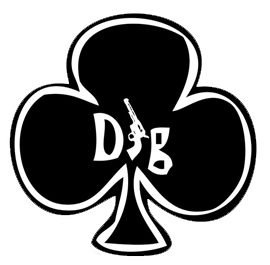
The Jolly-Boat Pirates were a free jazz project on Umlaut Records that lasted from 2004-2008. The ensemble was a quartet of three Swedes and one American – They were Niklas Barno on trumpet, Devin Gray on drums, Joel Grip on double bass, and Lars Ahlund on saxophones. Furthermore, their time together happened to coincide with the time of my undergraduate study at the Peabody Institute of Music where they were also studying.
The Jolly-Boat Pirates had a few years on me at the time, I suppose they still do now, but the point is that seeing them perform and hearing this kind of jazz music making felt and sounded like something I had never experienced before. It felt somehow more organic, more open to responding to itself as it created itself. Their live performances had a way of messing with my sense of time. You cannot always tap your foot along in a measured way when you listen to them, but I was engaged in the kind of way that allowed large quantities of time to slip away undetected. I found them to be completely engrossing then, and I still do today. Recently I have re-discovered the first of their two releases and have gotten hooked on their sound all over again.
The Jolly-Boat Pirates: Bro
The tune Bro is the stand out track of the album for my taste, but I was always a sucker for a ballad. The piece opens with Lars Ahlund gently swinging a series of arpeggios on his saxophone with a breathy tone that still manages to maintain that thickness which reminds the listener that it is still coming from a vibrating slab of wood. Meanwhile, Barno begins to dance overtop of this harmony with a seemingly familiar and wistful melody. The combination of his clean and clear trumpet sound over the saxophone makes for an interesting and appealing soundscape. Furthermore, I love the subtly of Joel Grip as he bows the bass line with a quite confidence and Devin Gray's illuminating drumming as he is ultimately the one who shapes this opening monolog as the four minute crescendo that it is.
The B section of the composition begins with empty space which is then slowly occupied by all members of the quartet striving to find that boiling point of emotion and technique. This is the area of the piece that most overtly allows the musicians to play off of each other to stretch and pull time, dynamics, and musical content. This is the reactionary section of the performance. This is where the money is for people who enjoy performing this kind of music and for audience members who want to embrace the destination without knowing the path to get there.
Finally, the closing two minutes of the piece returns to the opening content as a kind of symmetrical peace offering to the listener. We have arrived back where we began but the trip around the song may have taken a few unexpected detours melodically and dynamically. The Jolly-Boat Pirates performed this style of music so well because they played with open hearts and open ears. Like all the best musicians, they knew how to read each other within the context of a performance. They knew how to push each other to get the most out of each other on stage. I am glad that I was able to share a few of these performances then and that I am able to still enjoy the music now.
If you would like to hear more from The Jolly-Boat Pirates the music is still available via Umlaut Records and Myspace. Furthermore, although the band members may have gone on to other projects that doesn't mean they aren't still making badass music worth your attention. Keep your ears and eyes open because these musicians have a lot to say. You dig?


